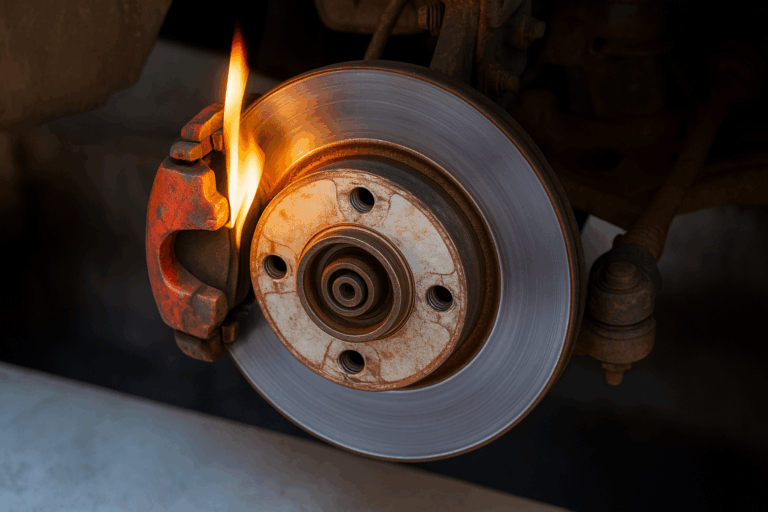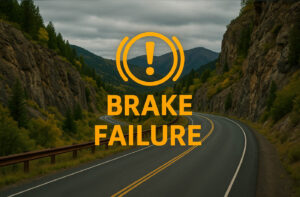
We’ve all heard it before: when someone rear-ends another car, they’ll try almost anything to avoid taking the blame. Even though insurance usually will protect the person at fault, most people hate admitting they made a mistake. Ask any police officer and they will tell you the at fault party is concerned their insurance premiums will increase. So it isn’t uncommon for people to lie to avoid responsibility, claiming that faulty brakes caused the crash. Unfortunately, that excuse is rarely true.
In the rare case where your brakes really do fail through no fault of your own, you may not be found negligent in a civil case. Negligence means you acted carelessly, or more specifically, that you failed to exercise reasonable care under the circumstances. When that happens, you’re responsible for the damage you cause.
If you want to be believed that your not at fault if your brakes genuinely failed, the first requirement is that you weren’t negligent in maintaining your vehicle. For example, if your mechanic warned you that your brake pads were worn out and you chose not to replace them, then you’re responsible for the failure. Drivers have a general duty to keep their cars in safe operating condition.
Another key factor in determining liability is witness testimony. Police reports and statements from bystanders often play a crucial role in assessing fault. If you never mention brake failure at the scene, it will be obvious that the excuse was made up later…so don’t lie. Trying to dodge responsibility only makes things worse.
Many insurance companies offer accident forgiveness programs that help restore your rates to normal after a crash. It’s not worth trying to escape blame and hurting the other driver (or drivers) in the process. Being the victim of a car accident can be life-changing, and those affected deserve fair compensation. After all, you pay for insurance for a reason, so let it do its job and protect you when you need it most.
Probably the single easiest way to tell that a driver is lying about having their breaks go out is that the driver will usually drive their own car home from the scene. Even a child could tell you that it is completely unsafe to drive a car with no breaks. If someone hits you, and they claim that their brakes went out, they should not drive home. In order to prove that faulty brakes were the cause of the accident, as opposed to negligence by the driver, the driver must document an immediate brake repair after the accident. The notes from the brake repair should include remarks from the mechanic as to the obvious reason that the brakes suddenly went out.
Brake failures are a more significant factor in crashes than many realize: according to the National Highway Traffic Safety Administration’s NMVCCS report, brake-related problems accounted for about 22% of all crashes attributed to vehicle defects. (crashstats.nhtsa.dot.gov) Meanwhile, a 2024 academic study found that brake defects were the largest single category (~42%) among documented defect-related collisions in its sample. (cell.com)
Considering all these details, lying about having faulty brakes is a very tough thing to get away with. The truth will come out. The best policy is to drive responsibly, and to contact an injury lawyer if you are hurt in a car accident to see if they can offer you some help.
Published: July 5, 2015 by Andrew Spainhower
Last Updated on November 4, 2025
This article is offered only for general information and educational purposes. It is not offered as and does not constitute legal advice or legal opinion. You should not act or rely on any information contained in this article without first seeking the advice of an attorney

